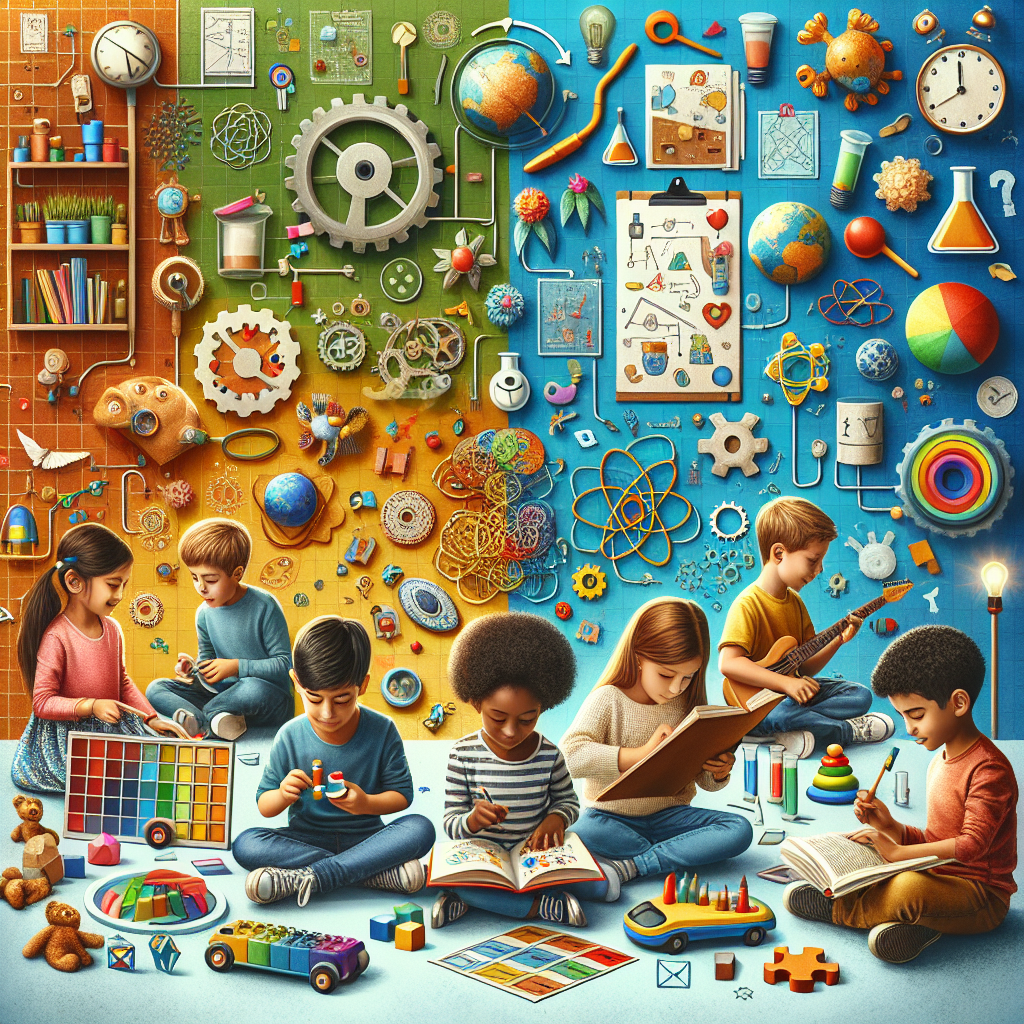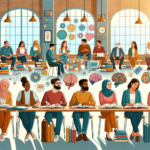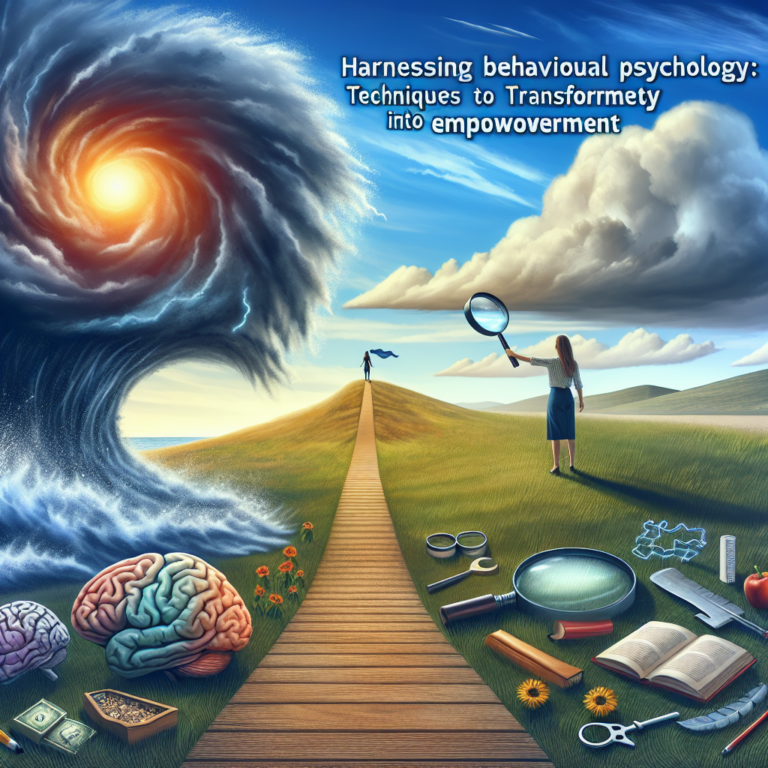
The Science of Play: How Behavioral Psychology Enhances Learning and Growth in Children
Introduction
In the bustling world of education and development, play is often underestimated as merely a frivolous activity reserved for children. However, the robust relationship between play and learning is illuminated by the principles of behavioral psychology. The Science of Play: How Behavioral Psychology Enhances Learning and Growth in Children is not just an academic interest; it’s a vital framework that underscores the importance of incorporating play into educational practices. This article dives deep into how play can be leveraged to optimize children’s cognitive and emotional development, dramatically changing how we view learning experiences.
The Fundamentals of Play
What is Play?
At its core, play is an essential form of human activity, particularly crucial in childhood. It encompasses a range of activities, from structured games to free-form exploration. According to the American Academy of Pediatrics, play is fundamental for healthy brain development. But what makes it so effective? Behavioral psychology offers insightful explanations.
Behavioral Psychology and its Role in Play
Behavioral psychology focuses on observable behaviors rather than internal phenomena like thoughts or emotions. This scientific lens allows us to measure how children learn from their environment through play. By reinforcing positive behaviors and responses during play, children can absorb fundamental skills and knowledge effortlessly.
Theories Linking Play to Learning
Several pivotal theories connect play with cognitive growth:
Jean Piaget’s Theory of Cognitive Development: Piaget emphasized that children learn through play and that their cognitive development occurs in stages, primarily facilitated by their interactions during play.
- Lev Vygotsky’s Social Development Theory: Vygotsky asserted that social interaction is critical for cognitive development, making cooperative play a potent medium for learning new concepts.
Both theories affirm that play is a powerful vehicle through which children can explore their thoughts, develop social skills, and foster creativity.
The Multifaceted Benefits of Play
Cognitive Development
Play enhances cognitive skills like problem-solving and critical thinking. Children learn to navigate challenges through trial and error, experiencing the cause-and-effect relationship firsthand.
Case Study: The Power of Block Play
A study by the University of Arkansas found that children engaged in block play improved their spatial skills and mathematical understanding. Children who regularly participate in block play showed better performance on standardized tests, demonstrating the cognitive benefits of physical manipulation in play.
Relevance: This case exemplifies how hands-on play can translate into measurable academic achievements.
Emotional Growth
Children harness emotional intelligence through play by learning to manage feelings, understand others, and navigate complex social interactions.
Case Study: Role-Playing Scenarios
Research from the University of California indicated that children engaged in role-playing games showed heightened empathy and emotional recognition compared to their peers. By taking on various roles, they develop emotional depth and learn to interpret emotions in others.
Relevance: This case highlights the emotional benefits of play, revealing how behavioral psychology can aid in emotional growth.
Social Skills Development
Play fosters teamwork, leadership, and negotiation skills. Cooperative play necessitates interaction with peers, promoting social skills.
Case Study: Games in a Classroom Setting
A classroom experiment conducted by researchers at Yale University uncovered that children participating in group games exhibited greater social skills compared to those who engaged in solitary activities. The results demonstrated how collaborative play encourages communication and cooperation.
Relevance: This illustrates the integral role of socialization through play, emphasizing the collective benefits as outlined in behavioral psychology.
Physical Development
Through activities like running, jumping, and climbing, children enhance their gross motor skills, coordination, and overall physical fitness.
Case Study: Outdoor Play and Obesity
A longitudinal study published in the Journal of Pediatrics highlighted that children who have regular access to outdoor play exhibited lower rates of obesity and related health issues. The findings indicated that facilitating play in natural environments positively impacted physical health.
Relevance: This case underlines the necessity of integrating physical play into children’s daily routines for overall growth.
Strategies for Incorporating Play in Education
Create Play-Centric Learning Environments
Educators and parents should aim to transform traditional learning settings into spaces that encourage exploration and play. Creating zones for free play and structured play can enhance engagement and promote learning.
Use Gaming to Foster Learning
Utilizing educational games can fulfill the dual purpose of play and learning. Platforms like Kahoot! or Quizlet combine fun with interactive learning, reflecting the principles of The Science of Play: How Behavioral Psychology Enhances Learning and Growth in Children.
Encourage Collaborative Play
Facilitating group activities and cooperative games can help children develop teamwork and leadership skills, fulfilling social goals while being enjoyable. Implementing initiatives that promote group participation can heighten social awareness and emotional intelligence among peers.
Integrate Play into Curriculum
Teachers can embed play within academic subjects, such as incorporating role-playing into history lessons or using art projects to explore scientific concepts. This significant blending offers children the chance to understand difficult concepts through enjoyable hands-on experiences.
The Role of Parents in Play-Based Learning
Parents and caregivers hold pivotal roles in ensuring children engage in play that is enriching and educational. Here are ways they can foster a playful learning environment:
- Be Involved: Join in play activities to facilitate connection and deeper learning.
- Encourage Exploration: Allow children the freedom to explore and experiment rather than provide all the answers.
- Limit Screen Time: Promote activities that encourage physical play and creativity rather than passive consumption of digital content.
- Model Playfulness: Exhibit playfulness in daily interactions to instill that play is valuable at any age.
Embracing Cultural Variations in Play
Different cultures have unique approaches to play, often reflecting their values and societal norms. Understanding these variations can enhance how we incorporate play into learning:
Indigenous Play Traditions
Many Indigenous cultures emphasize community play that fosters connection, storytelling, and shared learning experiences. These practices can teach valuable lessons about communication, respect, and conservation.
Urban vs. Rural Play Dynamics
Research indicates variations in play styles and availability based on urban or rural settings. Urban environments might prioritize structured play for safety, while rural areas may afford children more freedom to explore nature-led play.
By recognizing the cultural context of play, educators and parents can create more inclusive and effective learning environments.
Measuring the Impact of Play on Learning Outcomes
Quantifying Effects
To substantiate the claims regarding play’s role in learning, it’s essential to employ a variety of assessment tools, including:
- Standardized Tests: To measure cognitive skills.
- Observational Studies: To gauge social interactions.
- Developmental Checklists: To monitor growth in emotional intelligence and physical skills.
Analyzing Data
A meta-analysis from a collection of studies across the globe revealed that children who engage in play-based learning consistently outperform their peers in standardized assessments.
Charting Learning Gains
| Learning Domain | Typical Growth from Play-Based Learning (%) |
|---|---|
| Cognitive Skills | 30% |
| Social Skills | 40% |
| Emotional Intelligence | 35% |
| Physical Coordination | 25% |
This table demonstrates the impressive outcomes associated with play, solidifying its importance in developmental psychology.
Conclusion
The Science of Play: How Behavioral Psychology Enhances Learning and Growth in Children is an enlightening exploration into how embracing play as a fundamental component of learning can significantly enrich childhood development. Through fostering cognitive, emotional, social, and physical skills, play emerges not merely as an outlet for joy but as a vital mechanism for holistic growth.
As we move forward, educators, parents, and policymakers must work together to advocate for play-centered learning practices. Every child deserves a chance to learn through the joyous mechanism of play, which lays the groundwork for a bright, engaged future.
FAQs
1. What is the primary benefit of play in early childhood?
Play promotes cognitive, emotional, social, and physical development, creating a foundation for lifelong learning.
2. How can parents incorporate more play into their child’s routine?
Parents can actively participate in play, encourage exploration, and limit screen time to promote hands-on, engaging activities.
3. Are there specific types of play that enhance learning more effectively?
Yes, cooperative games and role-playing activities are particularly effective in fostering social and emotional skills.
4. How does play influence a child’s academic performance?
Research shows that children who regularly engage in play-based learning often perform better academically due to improved critical thinking and problem-solving skills.
5. Can play impact a child’s emotional intelligence?
Absolutely. Engaging in play allows children to practice managing their emotions and understanding the feelings of others, thus enhancing emotional intelligence.
In embracing the rich tapestry of The Science of Play: How Behavioral Psychology Enhances Learning and Growth in Children, we unlock the extraordinary potential of every child, ensuring they not only learn but thrive.

















